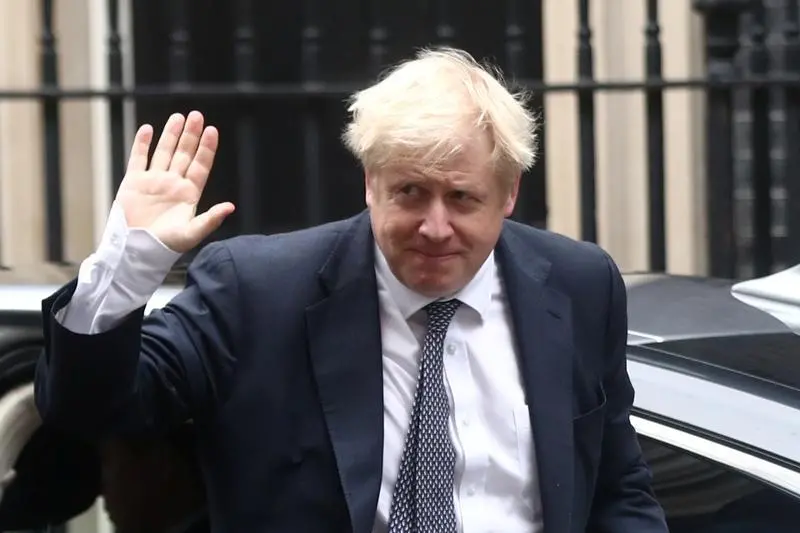PHOTO
LONDON - Boris Johnson’s government has spent two months telling British citizens to “Get ready for Brexit”. The campaign appears to have had little impact on members of parliament. Lawmakers on Tuesday evening decided that, while they were willing to debate the prime minister’s deal to leave the European Union, they did not accept his rushed timetable. What happens next depends on the EU, on parliament, and on Johnson himself.
Johnson’s failure to push his deal through the House of Commons in three days means he will miss his Oct. 31 Brexit deadline. The remaining EU countries will now consider the prime minister’s request for an extension, which he was forced to submit after parliament withheld approval for his agreement last Saturday. Barring an unforeseen plot twist, the EU will once again extend Britain’s membership of the bloc, probably until the end of January.
The focus then returns to parliament. Johnson could adopt a more realistic timetable and try to ratify the deal by, say, the end of November. The government is close to a majority: It lost by just 14 votes on Tuesday, and a similar margin on Saturday. However, the pro-Brexit coalition is fragile. Prolonged scrutiny of the flawed agreement – and growing understanding of its economic costs - make it harder for Johnson to keep everybody onside.
Parliament will also seek to amend the deal. One popular idea is to insist that Britain remain in a customs union with the EU after Brexit. Johnson might accept that in the hope of reversing it later. A requirement to hold a second referendum would be harder to swallow, but has less support. Parliament could also boot out the prime minister and install a caretaker government, though it cannot agree who should take over.
If Brexit is extended, Johnson may ditch the legislation and push for an election, campaigning for his deal against opponents who thwarted his “do or die” promise.
The former London mayor’s Brexit experience has been similar to that of his predecessor: take a hard line, compromise to get a deal with the EU, then fail to get it through parliament. Yet while Theresa May’s adventure took three years, Johnson has done it in less than three months. He’s closer to delivering Brexit than May ever was. But Britain is still not quite ready.
CONTEXT NEWS
- European Union leaders should delay Brexit after Prime Minister Boris Johnson paused legislation on his deal following a parliamentary defeat, European Council President Donald Tusk said on Oct. 22.
- Earlier in the evening lawmakers had voted 329 to 299 in favour of the second reading of the legislation for Johnson’s deal, allowing it to proceed to the next stage of parliamentary scrutiny. But they then voted 322 to 308 against the prime minister’s proposed timetable to rush the legislation through the House of Commons in just three days.
- "I must express my disappointment that the House has yet again voted for delay," Johnson told parliament.
- The next step, he said, would be waiting for the EU to respond to a request to delay the Oct. 31 Brexit date, which Johnson reluctantly sent to Brussels on Oct. 19 after being forced to do so by lawmakers.
- The pound was trading at $1.286 on the morning of Oct. 23, after almost touching $1.30 shortly before the vote.
(Editing by George Hay and Karen Kwok)
© Reuters News 2019





















